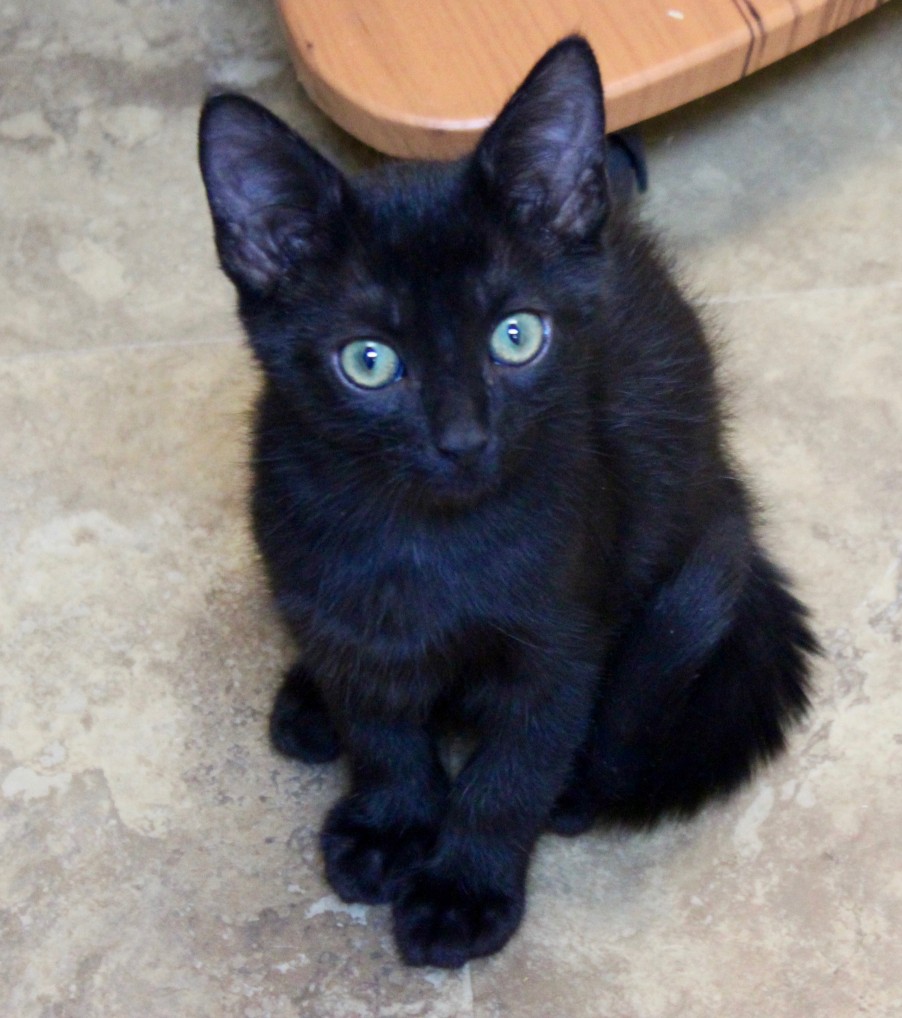Kitten Socialization
Congratulations on your new kitten! We wish you a long happy relationship, with all the joys of a cat’s graceful companionship and love. We hope that your kitten grows into a confident cat, able to cope with the inevitable stressors of lifelike, the addition of new pets, home improvement projects, vet visits, food changes, taking medications, moving households, car rides, visitors, your absence during vacation… without reacting with anxiety, fear, and urinating outside of the litter box! How can you make sure your adorable new kitten is a cool cat and not a scaredy-cat?
Socialize them!
But what exactly does that mean? The answer lies in the extraordinary ability of the young kitten to take in and make lasting impressions about the world around them. Kittens are naturally curious but grown cats are naturally cautious and automatically categorize anything unfamiliar as threatening. Your kitten should be offered a wide variety of opportunities to explore and to interact with different people, animals, sights, sounds, and activities. And that’s where we come in!
Our job is to introduce our kittens to everything they will or even might encounter in their adult lives in a positive way. How do we make things positive for kittens? Basically by giving them food! The food is good. The play is good. Food and play make new, potentially scary things also good. Pairing novel things with food and play generally makes kittens happy with that novel thing.
The key is to have a purposeful program; daily practicing handling, introduction of new people, animals, foods, sights, sounds, and activities. Use a kitten socialization checklist. Be savvy. Watch to make sure your kitten stays relaxed, if she shows signs of fear or stress, stop, slow down, and introduce the new activity or thing more slowly. Make every introduction fun.
Kittens should be trained to their carriers, just like puppies are crate trained. Carriers should be part of your kittens everyday routine. They should be a place to rest and be the place where your kitten can find treats or is fed.
Train your kitten to accept medication by giving them a soft treat, like a piece of Pill Pocket twice a day. In the case of your cat needing a pill, simply put the pill in the soft treat.
Avoid the “picky eater” by giving small amounts of different textured, shaped, and flavored foods. Mother cats teach kittens how to hunt and thereby teach them what is safe to eat. If you feed kittens only one food, they will naturally avoid all other foods as adults.
Up to ninety percent of cats will have inappropriate urination at some point in their lives. Barring a medical condition, think of this as a signal, a “peemail” if you will. This is a cat’s signal that they are experiencing stress, anxiety, or fear. Avoid this common problem. Socialize your kitten and enjoy your friendly, happy cat!
For more information on kitten socialization, go online for:
The San Diego Humane Society Kitten socialization checklist.
Purchase and watch “Kitty Kindergarten, Creating the New and Improved Cat Through Socialization” by Sophia Yin.


